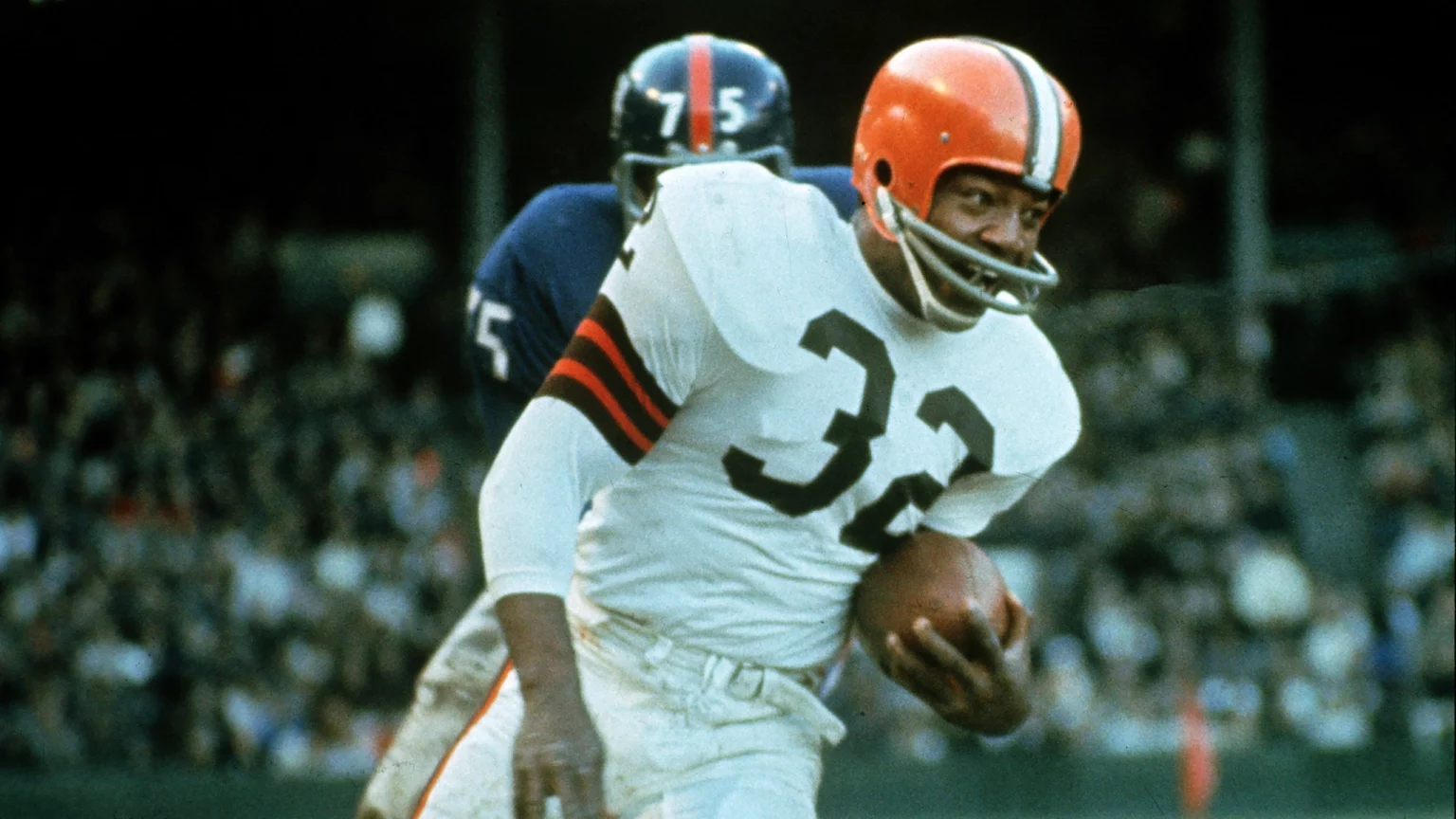Jim Brown, the legendary running back for the Cleveland Browns and a prominent figure in the civil rights movement, has passed away at the age of 87. With an illustrious career on the football field and an unwavering commitment to social causes, Brown left an indelible mark on the NFL, civil rights, and the community as a whole. Let us take a closer look at the life and legacy of this extraordinary athlete and advocate.
Jim Brown was widely regarded as one of the greatest football players in history. Spending his entire career with the Cleveland Browns, he dominated the NFL as a running back, leading the league in rushing for an impressive eight seasons. Brown’s remarkable performances and unparalleled statistics cemented his place among football’s elite. Notably, he achieved seven seasons with over 1,000 rushing yards, including exceptional displays like a 1,527-yard season in just 12 games and a 1,863-yard season in 14 games.
Beyond his athletic achievements, Jim Brown used his platform to champion social change. His involvement in civil rights initiatives marked him as more than just a football player. In 1967, Brown played a pivotal role in the Cleveland Summit, joining other influential Black athletes in supporting Muhammad Ali’s refusal to be drafted into the US armed forces during the Vietnam War. This collective stand became a symbol of unity and resilience within the Civil Rights movement.
Throughout his tenure with the Cleveland Browns, Brown achieved numerous milestones and received well-deserved accolades. In 2002, the Sporting News named him the greatest football player ever, acknowledging his immense impact on the sport. Brown consistently performed at an elite level, earning Pro Bowl selections every season and leading Cleveland to three NFL championship games, including a victorious campaign in 1964.
While Jim Brown’s accomplishments are widely celebrated, his life was not without controversy. He faced multiple legal issues, including assault charges, a road-rage case, and a misdemeanor battery conviction. In 1985, he was charged with rape, but the charges were eventually dropped. Brown’s personal life also witnessed turmoil, with instances of domestic violence leading to his arrest and subsequent jail time. These incidents remain a part of his complex legacy.
Following his retirement from football, Brown transitioned into acting and immersed himself in various entrepreneurial and social endeavors. Notably, he founded the Negro Industrial and Economic Union, later renamed the Black Economic Union, to support black entrepreneurs and advocate for greater equality. Brown’s commitment to empowering others and striving for social justice continued to shape his post-football career.
Jim Brown’s impact on the NFL, civil rights, and the community will be remembered for generations to come. His exceptional talent on the field, combined with his activism and advocacy for equality, solidified his place as an icon in both football and civil rights history. Brown’s contributions extend far beyond his athletic achievements, as he inspired fellow athletes to make a difference in their communities and encouraged them to utilize their platforms for social good.
The passing of Jim Brown leaves a void in the world of football and civil rights activism. His remarkable talent, unwavering commitment to social causes, and enduring legacy will continue to inspire and influence future generations. Jim Brown will forever be remembered as a football legend and a civil rights icon, leaving an indelible mark on the sport, society, and the fight for equality.




